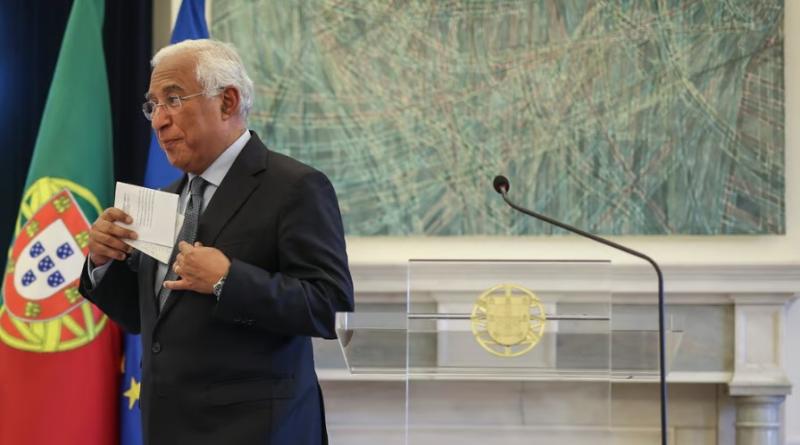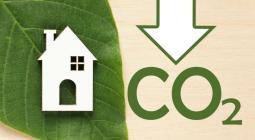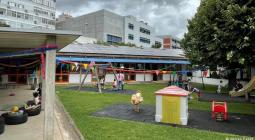Portugal’s corruption scandal spells trouble for EU’s critical minerals hunt

The European Union’s hunt for raw materials is running into new roadblocks — at home and abroad.
Portuguese Prime Minister António Costa’s recent resignation over a corruption probe in connection with lithium mining concessions in the north of the country has just dealt another blow to Brussels’ ambitions to diversify its supply of raw materials needed for green and digital technologies.
Currently, the EU relies on imports to satisfy its rapidly growing hunger for lithium, a key ingredient in the batteries that power electric vehicles, with China accounting for 60 percent of global battery cell production. Brussels is determined to change that, aiming to diversify supplies of such critical raw materials by boosting mining at home and tapping more reserves in resource-rich and like-minded partner countries.
But while EU institutions clinched a deal Monday on Brussels’ grand plan to achieve just that, Portugal’s corruption scandal shows how frail the bloc’s ambitions are.
Costa apologized in a televised speech to the nation at the weekend in a bid to ensure that "Portugal does not waste strategic opportunities for its development.” His infrastructure minister, also embroiled in the scandal, quit on Monday evening.
Together with a green hydrogen mega-project and a data center that are also under investigation, the lithium extraction projects add up to an investment of €23.5 billion that Costa had wanted to secure. Portugal’s lithium deposits are seen as central to the bloc’s efforts to secure its own reserves.
But while countries rely on investment to tap their domestic resources, the bloc’s lack of preparedness for its own mining push means investors risk pouring money into projects that never see the light of day.
“I don't find it surprising that there is massive corruption in this area,” said Tobias Kind-Rieper, global lead for mining and metals at the World Wildlife Fund (WWF).
The bloc’s bid to accelerate permitting procedures to secure critical minerals undermines transparency, he warned.
“When it comes to speeding up authorization procedures [of mining projects], there will be a lot more of it ... especially in countries where the rule of law is weakly implemented. But even in countries where law enforcement is supposedly good, there will be many problems because we don't have the capacity to scrutinize [the approvals process]."
From the outset, the Portuguese lithium mining projects were mired in controversy, with opponents sounding the alarm over the poor quality of the reserves and the environmental damage that extraction operations would cause.
Following the launch of the probe, the association Unidos em Defesa de Covas do Barroso, which is campaigning against the opening of a mine that would border the village of Covas do Barroso, called for the “immediate suspension of any mine licensing, prospecting or exploration licenses until the investigation into members of the Portuguese government in relation to lithium projects can determine any criminal liability.”
Public opposition is a major obstacle to opening new mines. British-Australian mining giant Rio Tinto last year had to put plans to open a lithium mine in Serbia — which it says would be the largest in Europe — on halt after the government revoked its licenses in response to local opposition. Serbia is a candidate to join the EU.
New mining projects have also faced protests in EU member countries Germany, Sweden and Spain.
External hustle
Abroad too, Brussels’ raw materials ambitions are hitting hurdles. The bloc is seeking to strike a balance with its trading partners to ensure that both sides benefit from raw materials agreements, while turning this into a selling point to distance itself from Beijing.
To do so, the bloc has been scrambling to diversify its access raw minerals and ink agreements with lithium-rich Australia, Chile or the South American Mercosur group — all with limited success.
Argentina is part of the so-called lithium triangle with Chile and Bolivia; the three countries hold well over half of the world’s known reserves of the metal. Australia is the world’s largest producer of lithium.
Just last month, closely watched negotiations between Australia and the EU theatrically collapsed over beef and sheep quotas — forthcoming elections on both sides mean that any deal might have to wait until 2025.
The unraveling of the talks means that Brussels will have to be patient to access Australia’s reserves, just as Canberra won’t be able to bank on European investments in the sector.
Canberra was betting on attracting investments from the EU to extract the precious minerals as it similarly seeks to diversify away from China. But it might now have to turn to other partners instead. Currently, Australia ships most of its lithium to China for processing.
In a thinly veiled dig at Brussels, Don Farrell, Australia’s trade minister, said Tuesday that his country would look toward the “great potential” of untapped Southeast Asian economies following the failure of the trade talks with the EU.
“Let’s be honest, it was simply too easy to fly your product into China,” Farrell told an Australian outlet. “But Covid tells us, the unstable nature of the world tells us, we have to do better in our own region. That’s where we failed in the past.”
Meanwhile, the EU's talks with the Mercosur countries — Brazil, Argentina, Uruguay and Paraguay — are taking a bumpy turn. The Commission last week acknowledged it might need to reopen the trade deal struck at a political level in 2019, possibly delaying yet again the landmark trade pact that’s been in the making for decades.
The South American countries want to make clear that they will no longer accept extractive relationships.
“We don't want to be suppliers of raw materials, we want to be partners,” according to Gustavo Martínez Pandiani, Argentina’s top envoy to Switzerland and a close adviser to Sergio Massa, the country’s current economy minister.
“The risk — even for Europe — is that if we are just the supplier, we could get another client, such as China,” the senior Argentinian official told POLITICO.
Aitor Hernández-Morales contributed reporting.





